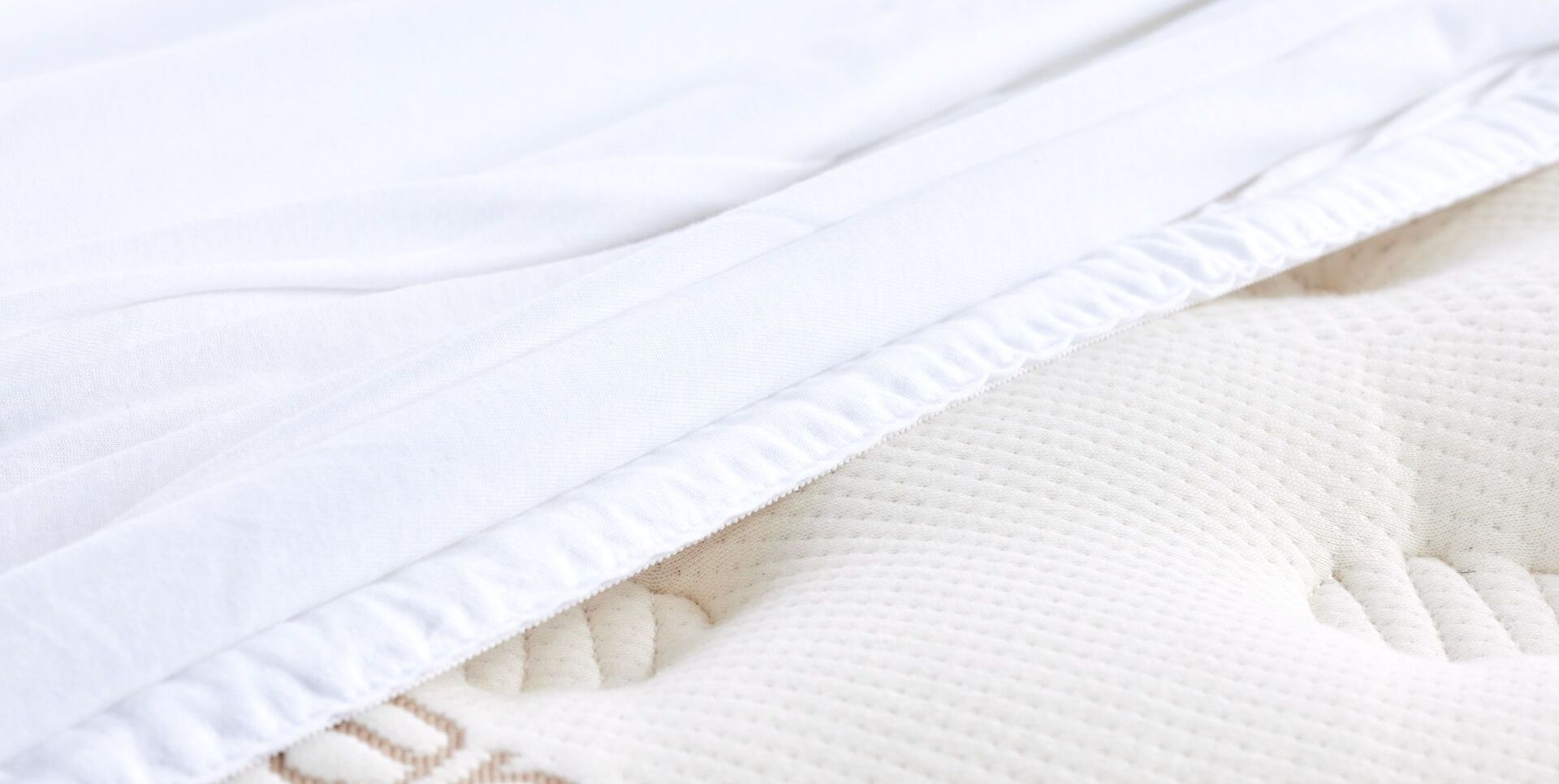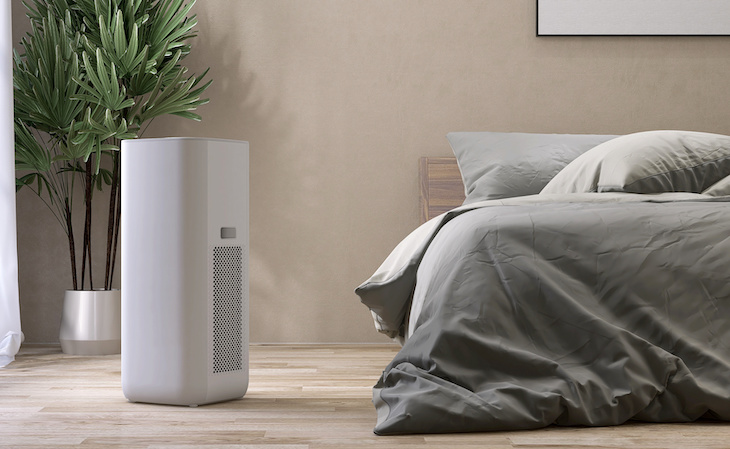Logging horrible sleep? While you can blame obvious culprits like doom scrolling right before bed or being too hot when you sleep, there’s one you may not have considered: Poor air quality (AQ).
Improving the AQ in your bedroom isn’t usually something that appears on most experts’ tips for snoozing more soundly. Yet it should, especially given that it’s been a hot topic recently with wildfire smoke and other pollutants making the world’s air worse, and data suggests there’s a link.
Proof comes from a review in Environmental Pollution in which researchers evaluated 22 studies that examined the relationship between air pollution and sleep. Their conclusion? “Existing literature generally shows a negative relationship between exposures to air pollution and sleep health in populations across different age groups, countries, and measures,” they write.
Multiple factors can explain this. For starters, increased carbon dioxide levels from pollution hamper breathing, which can make sleeping more problematic, says Carleara Weiss, PhD, RN, sleep science advisor at Aeroflow Sleep.
Another factor that often accompanies poor AQ or air pollution is increased room temperature, which can interfere with your body’s ability to lower its temperature. As a result, you might not be able to fall asleep as easily, and nighttime awakenings will increase. Overall, “poor AQ makes people sleep less and worse,” Weiss says.
How to improve the air quality in your bedroom
Want to give that bedroom air a makeover? Here’s what you should know.
Monitor the AQ
Buy an indoor AQ monitor so that you know how the air in your bedroom is. These monitors measure the amount of pollution in the air, looking at variables like particulate matter, carbon dioxide, and environmental factors such as temperature and humidity, says Michael Rubino, a mold and AQ expert and founder of HomeCleanse. You can also stay abreast of outdoor AQ in your area by checking AirNow.
Shut windows and doors
You don’t want to allow any more outdoor air in than necessary, especially if the AQ is bad. If it’s not too hot outside, close all windows and doors and turn on the air conditioner if possible.
Clean your room regularly
Dust, allergens, mold spores, and mycotoxins, microscopic toxins released by some species of mold, will naturally blow inside your house and thus, your bedroom. So work to keep particle levels low and clean your bedroom almost weekly to keep it dust-free.
Wash the bedding at least once a week and the

Breathable, undetectable protection from spills, dirt, stains, and humidity
every month or two with a botanical laundry additive, Rubino says. Although this will depend on the manufacturer, pillows should generally be washed every three months or so. Then run a HEPA vacuum cleaner on the entire mattress surface.
“Existing literature generally shows a negative relationship between exposures to air pollution and sleep health in populations across different age groups, countries, and measures.”
Review published in the journal Environmental Pollution
Clear the clutter
The more clutter you have in your room, the more chance you have to attract pollutants. Plus, clutter makes it harder to clean so keep your room as clutter-free as possible.
Change your home’s air filters
“Air filters are the first line of defense for your heating, ventilation, and air conditioning (HVAC) system and indoor air,” Rubino says. They help eliminate dust and contaminants so they don’t continue circulating throughout your house.
However, if they’re past their time to be replaced, they’re most likely packed with particulates and won’t filter as well, which will lower your indoor AQ. Make sure you change them on time and check that they’re the highest-rated MERV filters possible for the specific HVAC system in your house, Rubino says.
Opt for less carpeting
Carpet retains moisture (which can allow for the growth of mold and bacteria, which will lower AQ) and can trap microscopic particles that can become airborne when disturbed, Rubino says. Even vacuuming can stir up those particles—so if you see that the AQ inside (or outside) is bad, avoid running the vacuum. If possible, consider replacing your bedroom carpet with another flooring surface.
Get your HVAC system checked
Schedule twice-yearly appointments to make sure the system is operating properly and not blasting contaminants throughout your home, Rubino says.
FAQs
What causes poor air quality in a bedroom?
Many things cause poor AQ in a house, but certain ones play a role in the bedroom. They include lack of airflow and ventilation, pet dander (if your pet sleeps in your room), lack of cleaning, failure to take care of the mattress and bedding, carpeting, off-gassing from furniture and belongings, and clutter, Rubino says.
How do you purify the air in a bedroom?
Freestanding purifiers can be a powerful way to remove airborne pollutants. Not every purifier, though, is built the same—so make sure you buy a unit that removes the maximum number of contaminants possible, Rubino says. Even better, invest in a whole-home air purifier, which filters out particles for the entire home.
Plants can also help purify the air in your bedroom. Here are the best plants to place in your bedroom.




